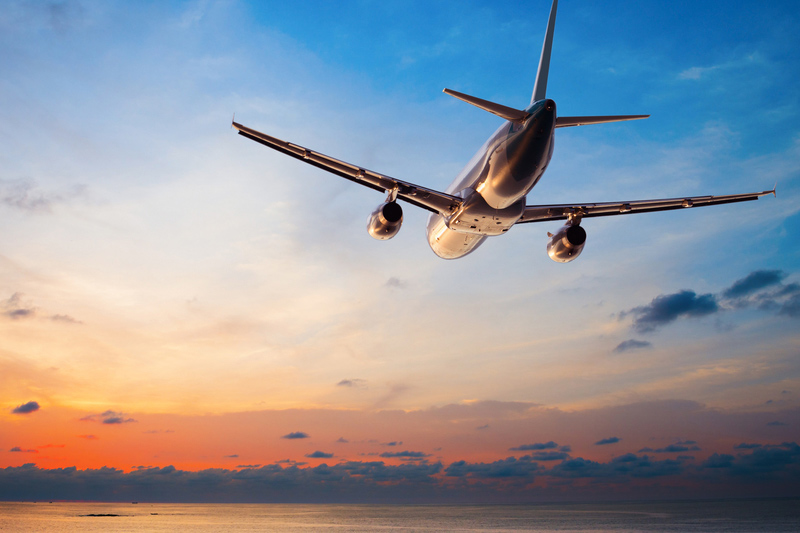By Victoria Bryan BERLIN (Reuters) - Venerable old airlines Lufthansa (DE:LHAG) and Air France (PA:AIRF) know the smart money is in the low-cost market –Ryanair (I:RYA) raised its forecasts again on Thursday - but powerful labor unions are keeping them from the bounty.
The full-cost airlines were slow to respond to the explosive growth of the likes of Ryanair and easyJet (L:EZJ) from the late 1990s for fear of cannibalizing their main revenue and because the upstarts were not directly competing on the same routes, and the efforts of Lufthansa and Air France were modest at best.
But now, with half of Europe's air travel market seized by the budget airlines, it is no longer a lack of will or foresight that is holding back the two carriers.
Air France's big plans to expand its Transavia low-cost unit are in trouble due to a costly strike by French pilots who fear the project would mean lower pay and jobs moving elsewhere.
Talks reached an impasse on Saturday, with both the airline's management and the French government rejecting a request from the union for a mediator. The airline said it would be able to operate only 45 percent of flights on Sunday.
Fuel is typically the biggest expense for airlines, making up around 30 percent of the cost base, but pay comes a close second, at 20-30 percent. Stripping out fuel, Ryanair (I:RYA) has the lowest unit cost in Europe, followed by Spain's Vueling - part of the IAG Group (L:ICAG) - easyJet (L:EZJ) and Norwegian Air Shuttle (OL:NWC).
To stand any chance of competing, that means legacy carriers need to cut staff costs.
Industry watchers point to the example of British Airways' parent IAG, which has struck some tough labor agreements, such as with BA cabin crew in 2011 after a protracted period of strikes that cost it around 150 million pounds ($244 million), and more recently with Iberia pilots and ground staff.
Analysts estimate BA's labor costs are around 15 percent lower than the average for legacy airlines.
"These changes are allowing IAG to invest in new fleet and routes which will help ensure a brighter future for Iberia and its work force. Lessons need to be learned at Air France and Lufthansa," Strickland said.
Union Investment, one of the biggest 15 shareholders in Lufthansa, said Spohr has to take a firm line with the unions.
"The Anglo-Saxon companies are much tougher, as we saw with British Airways," portfolio manager Michael Gierse told Reuters.
Joerg Handwerg, board member for German pilots' union Vereinigung Cockpit, told Reuters it objected not to cost cuts but to "Lufthansa trying to dissolve collectively agreed pay structures".
UNEVEN FIGHT
Norwegian Air Shuttle gets around high domestic staff costs by using crew based in Asia to staff its flights between the United States and Europe, but the unions are unlikely to accept that at Air France and Lufthansa, analysts say, especially for the nations' flag-carriers.
In such an uneven fight, Gierse doubts the wisdom of Lufthansa even trying to expand its low-cost offering.
"Lufthansa should focus everything on their core product, namely flying business travelers around the world," he said.
If Air France can't reach a deal with its unions, it too might have to retreat to its more profitable segments.
"The backstop position may be to shrink the short-haul altogether," said James Halstead, airlines consultant at Aviation Strategy.
Even if the pair can make headway on cost cuts, the budget market is not standing still.
It is becoming more crowded as carriers such as Vueling and Norwegian challenge Ryanair and easyJet. A report by aviation consultancy Prologis shows that Vueling, acquired by IAG in 2013, now serves 129 destinations, a more than fivefold increase since 2009, catching up with easyJet's 130 destinations and the 179 offered by Ryanair.
Also, low-cost carriers are evolving to offer more services and fly to bigger airports to attack the legacy carriers' hold on corporate and higher paying travelers.
"It's an interesting time in the low-cost industry in Europe," AT Kearney consultant Rene Steinhaus told Reuters.
"Where once the low-cost carriers shied away from direct competition, they are no longer doing so."
That is troubling news for legacy carriers struggling with high costs and weak margins.
"The problem for legacy carriers is the more they are dealing with legacy issues, such as unions, who don't see the way forward, the harder it will be to set up a subsidiary and call it a low-cost airline," Ryanair boss Michael O'Leary said at a conference in Germany this week.
The CEO of Qatar Airways, Akbar Al Baker, put it more bluntly when talking about the challenges faced by Spohr.
"I'm sure he envies me very much because we don't have to take the crap of the unions," he told Bloomberg Television last week.
(Reporting by Victoria Bryan; Additional reporting by Tim Hepher; Editing by Will Waterman and Peter Graff)
